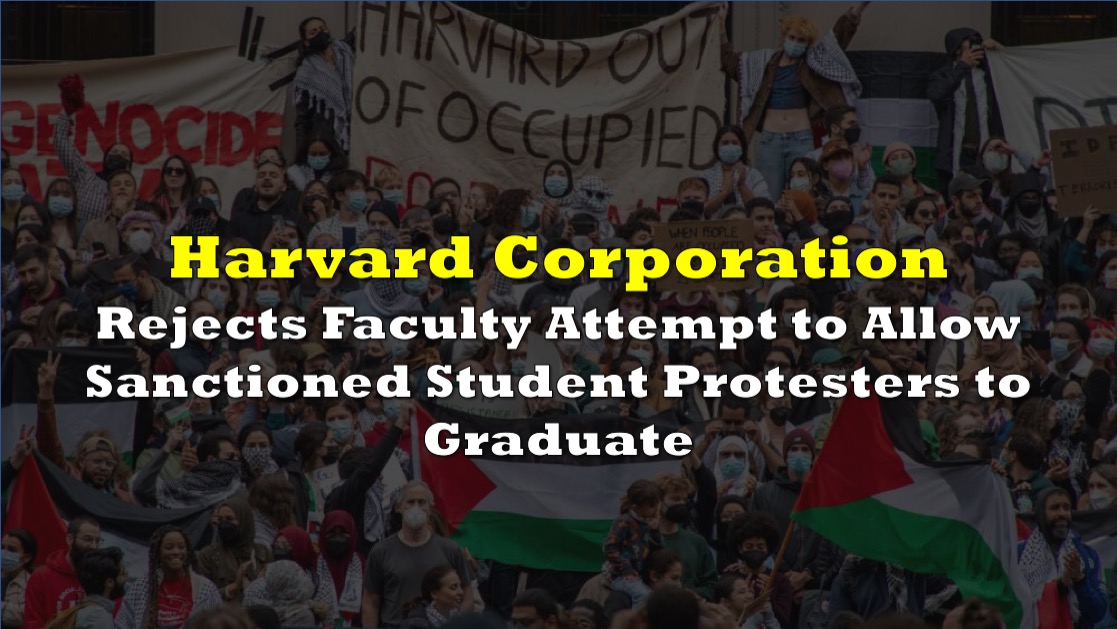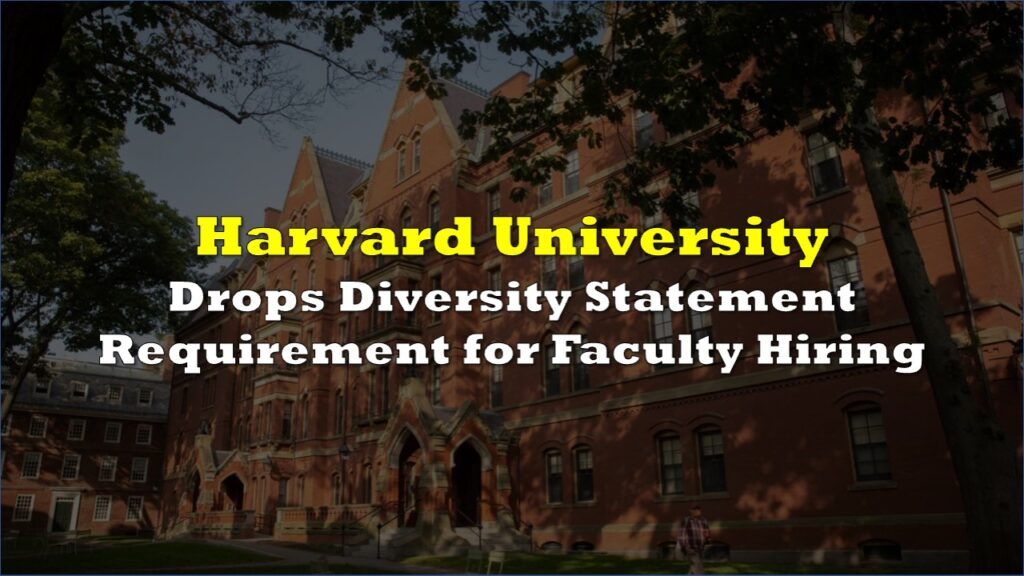The Harvard Corporation has decided against allowing sanctioned student protesters to graduate, following a contentious amendment passed by the Faculty of Arts and Sciences. The decision was formally announced with the conferral of degrees to 1,539 students in good standing, explicitly excluding those involved in recent pro-Palestine protests.
“Today, we have voted to confer 1,539 degrees to Harvard College students in good standing. Because the students included as the result of Monday’s amendment are not in good standing, we cannot responsibly vote to award them degrees at this time,” said Harvard in a statement. The corporation emphasized that students not in good standing, as determined by the College’s Administrative Board, cannot be awarded degrees under the University’s regulations.
The decision was a direct rebuke to an amendment introduced by faculty members at a recent Faculty of Arts and Sciences meeting which sought to add thirteen sanctioned students to the list of graduates.
Harvard Professor Ryan Enos argued that the Administrative Board serves at the will of the faculty. “On Monday, the faculty decided to take that authority back,” Enos stated, underscoring the faculty’s attempt to override the disciplinary actions taken against the students.
Professor Ryan Enos hardest hit. pic.twitter.com/OIcnfmSYnM
— Steve McGuire (@sfmcguire79) May 22, 2024
The two Harvard sides
Recently, nearly 400 pro-Israel Harvard alumni and affiliates signed an open letter to interim Harvard President Alan M. Garber, condemning the “alarming escalation of antisemitism” on campus during the pro-Palestine encampment. This letter called for significant consequences for the leaders of the encampment, a strong condemnation of antisemitism, and an end to discrimination against the pro-Israel community.
The letter also criticized faculty participation in the encampment, arguing it created an unsafe environment for Jewish and Israeli students. It demanded that university leadership issue a clear statement condemning all forms of antisemitism and provide equal access to administrators for pro-Israel groups, similar to that given to pro-Palestine advocates.
“No such meeting has been offered to the pro-Israel community, which has consistently abided by Harvard protocol and the laws of Massachusetts,” the letter read.
Adding to the tensions, Harvard affiliates honored Arab graduates and the 13 sanctioned seniors at a university-wide celebration organized by the Harvard Arab Alumni Association and the Harvard Society of Arab Students. During this event, suspended students were awarded honorary certificates and received standing ovations, highlighting the deep divisions within the community over the recent protests and subsequent disciplinary actions.
The ceremony included speeches by key figures from Harvard Out of Occupied Palestine (HOOP), who organized the encampment, emphasizing their solidarity with the pro-Palestine movement and condemning perceived institutional biases and the normalization of Zionism.
“Every one of these 15 students, every suspended student, every discipline student has exhibited more clarity, more moral courage, more bravery than any Harvard administrator, any Harvard dean, any Harvard president ever could,” Israa Alzamli, one of the honorees, said.
The faculty-proposed amendment and the subsequent decision by the Harvard Corporation underscore a significant divide within the university community regarding the handling of student protests and disciplinary actions. The affected students were part of a broader movement advocating for Palestinian rights, which included various protests and sit-ins that led to their disciplinary sanctions.
Context of the Protests
The protests, which lasted 20 days, were part of a larger movement organized by HOOP, a coalition of student groups advocating for pro-Palestinian causes. The encampment in Harvard Yard drew significant attention and led to disciplinary actions against several students.
According to reports, the Harvard College Administrative Board suspended five students and placed over 20 others on probation. These sanctions have affected the graduation eligibility of at least 12 seniors, including some high-achieving students like Rhodes Scholar-elect Suhaas Bhat, who publicly announced his probation status during a senior event.
Harvard College sanctioned two of its Rhodes Scholarship recipients for their participation in the illegal anti-Israel encampment that plagued campus for weeks.
— Mike Netter (@nettermike) May 21, 2024
Undergraduate students Asmer Asrar Safi and Suhaas Bhat were among the 25 students placed on suspension or probation… pic.twitter.com/MI0qLLruLU
This decision by the Harvard Corporation is said to be aligned with the provisions of the Harvard College Student Handbook, which stipulate that students not in good standing are ineligible to receive degrees. The Corporation has also indicated that it will consider degree conferral if these students become eligible following the completion of all review and appeal processes.
But the move has faced criticism from various student groups and faculty members who view the disciplinary actions as disproportionately harsh and potentially politically motivated. The protests and subsequent disciplinary actions reflect ongoing tensions at Harvard regarding free speech and the university’s stance on international political issues. The sanctioned students and their supporters have argued that their protests were a legitimate exercise of free speech, while the university maintains that their actions violated established policies.
Affinity groups such as the Harvard-Radcliffe Asian American Association and the Society of Arab Students have called for the reversal of the sanctions, highlighting what they perceive as a “Palestine exception to free speech.” These groups argue that historically, Harvard has taken a more lenient approach to student protests on various issues, from anti-apartheid demonstrations in the 1980s to fossil fuel divestment campaigns in recent years.
This comes months after a group of Jewish students filed a lawsuit against Harvard University, alleging the institution has fostered widespread antisemitism by selectively enforcing its anti-discrimination policies, thus leaving Jewish students vulnerable to harassment. The complaint claims that Harvard hired professors who support anti-Jewish violence and permitted the spread of antisemitic propaganda, violating federal civil rights laws.
This legal action also comes shortly after the resignation of Harvard President Claudine Gay, who faced criticism for her handling of antisemitism following the October 7, 2023, Hamas attack on Israel.
Information for this story was found via The Crimson, Inside Higher Ed), and the sources mentioned. The author has no securities or affiliations related to the organizations discussed. Not a recommendation to buy or sell. Always do additional research and consult a professional before purchasing a security. The author holds no licenses.









